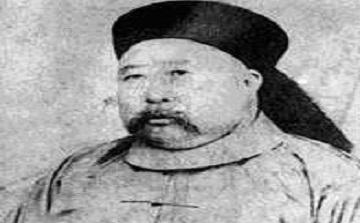
Nie Shicheng
At the end of 1899 (the 25th year of Guangxu), the Boxer Rebellion began in Shandong and spread to the Gyeonggi region a few months later. The tuan people hated foreign affairs, burned churches and shops along the way, and demolished railways, post offices, power lines and other facilities. Empress Dowager Cixi, who was trying to use the Boxers to fend off the foreigners, began to allow the Boxers to enter Beijing, and the Tuan people began to attack foreign embassies, churches, and stations, and searched everywhere to kill the foreigners. The ministers stationed in Beijing issued a joint note to the Qing court, asking the Qing court to suppress the Boxer Rebellion and protect the security of the embassies of various countries, but the Qing court refused. Subsequently, the Eight-Power Alliance led by british Admiral Seymour began to march to Beijing, which was the Eight-Power Alliance's war of aggression against China. In this war, a tragic patriotic general will complete his glorious life, he is the last backbone of the Qing Empire Army---- the famous general Nie Shicheng of the Huai Army.
Nie Shicheng soldiers
Nie Shicheng, a native of Hefei, Anhui Province, was a hero and righteous warrior since childhood, and then joined the army and began a forty-year career as a horseman. At first, he trained the three departments of Yuan Jia with the regiment to discuss the twist army, and later changed to the Huai Army's Liu Ming Chuanbu, and accompanied the army to conquer Taicang, Zhenyang, Kunshan, Xinyang, Wujiang, Zhenze and other places held by the Taiping Army, and rewarded Batulu with his merits. In March 1892 (the eighteenth year of Guangxu), he was credited with suppressing the Rebellion of the Jindan Sect in Rehe, and was rewarded with a yellow coat and was given the title of commander-in-chief of Taiyuan Town, Shanxi. After the outbreak of the Sino-Japanese War, Nie Shicheng accompanied the viceroy Ye Zhichao to aid the DPRK and garrisonEdan. Nie Shicheng then participated in the Battle of Yalu River Defense, insisted on Defending Tiger Mountain, organized the defense of Maotianling Mountain, and attacked Lianshan Pass in a snowy night, killing the enemy very heavily, killing the Japanese general Fu Gang Sanzao, and achieving a few victories for the Qing army. After that, the Qing court transferred Nie Shicheng's troops back to Defend Jingu, and because of his merits, he was directly subordinate to the Viceroy and presided over the coastal defense of Tianjin.
The Eight-Power Alliance that landed at Taku Pass
In the winter of 1898 (the twenty-fourth year of Guangxu), Nie Shicheng was ordered by the president to directly subordinate the Huailian armies, and the imperial court gave Nie Shicheng "public loyalty and honesty, and good training" to ride horses in the Forbidden City. After the rise of the Boxer Rebellion, the Tuanmin dismantled railway lines and other facilities along the way, and Nie was ordered to lead his troops to protect the railway in the Beijing-Tianjin area, and when attacked by the Boxers, he killed hundreds of Tuanmen, thus deepening his enmity with the Boxers. The Qing court's unstable policy toward the Boxers made the situation in the Gyeonggi area difficult to control, and eventually led to the invasion of the Eight-Power Alliance. In May 1900, The Tagu Fortress was lost, and the coalition forces subsequently engaged Nie Shicheng's troops in Tianjin. In late June, Nie Shicheng was ordered to attack the Tianjin Concession, while the Boxers took the opportunity to burn everywhere, and Nie Shicheng sent troops to suppress it, thus incurring the envy of the Boxers and slandering Nie Shicheng's collaboration with the enemy. Nie Shicheng, who was still angry, shouted: "The upper does not forgive the imperial court, and the lower see is forced by the boxers, and it is impossible to explain oneself unless one dies!" ”。 So every battle was personally on the front line to supervise the battle, so that the Eight-Nation Alliance called Nie Jun: "Since the engagement with China, I have never encountered such a brave army"!
The Qing army fighting the coalition forces
However, what is eye-opening is that when the Nie army and the coalition army were fighting fiercely, the Boxers went to Nie Shicheng's house to capture Nie Shicheng's mother, wife and daughter, and Nie Shicheng sent troops to chase after him, but was framed for collaborating with the enemy. On July 9, Nie Shicheng, who was determined to die, dressed in imperial clothes and wearing a yellow coat given by the Qing court nine years earlier, was killed by a cannon during a fierce battle with the coalition forces in Balitai at the age of sixty-four. The Boxers were supposed to kill Nie's corpse, but they were spared because the coalition forces pursued it, and later the German army wrapped the broken Nie corpse and handed it over to the Qing army. After Nie Shicheng's death, the Qing court went so far as to issue an edict saying that Nie Shicheng "lost his life by mistake, and he really hated it, remembered his previous achievements, and granted him a canon" (how can such a court not die). It was not until 1902, with the efforts of Yuan Shikai, that the Qing court posthumously gave Nie Shicheng the crown prince Shaobao, and according to the example of the death of the viceroy, he gave him a favor, and established special shrines in Tianjin and Hefei. Yuan Shikai once said: "The viceroy is loyal in nature, pure in his deeds, filial to his relatives, extremely honest in his officialdom, strict and gracious in command of the people, courageous and decisive in the face of things, resolute and courageous, and extremely powerful... Martyred with his body, and given orders in his bitter battles, the only one of the warlords should be therefore the governor. It is the most pertinent evaluation of Nie Shicheng.